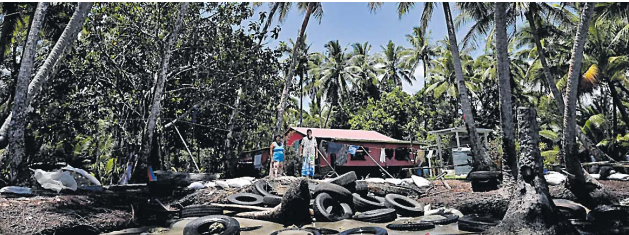THE climate crisis is impacting real lives across our Pacific Small Island Developing States, says Women Minister Sashi Kiran.
Ms Kiran told those present at the Sixth Forum of Ministers & Environment Authorities of Asia Pacific in Nadi this week, that rising sea levels, saltwater intrusion, and intensifying storms threaten our homes, livelihoods and futures.
“But these impacts are not felt equally,” she said.
“Globally, 80 percent of people displaced by climate change are women and girls facing heightened risks of poverty, violence or unintended pregnancies as they migrate to safer locations.
“Climate-induced displacement erodes indigenous knowledge, cultural practices, and heritage sites that is often led by women artisans and custodians.”
“Women make up almost 70 percent of market vendors across Fiji, their livelihood is highly vulnerable to climate and disaster shocks.
“Yet, too often, women’s voices remain underrepresented in the decisions related to climate change and disaster risk reduction.”
Ms Kiran said structural gender inequalities manifest unequal power relations that limit women’s access to and control of resources.
“Women’s caregiving responsibilities, their reliance on natural resources — as food for survival, herbal medicine, for production of traditional and culturally rooted crafts are at risk as livelihoods disappears — for example our very special Kuta grass from wetlands.
“Fiji is strongly committed to placing gender equality and women’s empowerment at the heart of climate action and resilience.
“When women and marginalised groups are recognised and included in every decision-making platform, solutions are transformative, inclusive, innovative, rooted in local realities and are impactful.
“We can witness that our local level, however, less than 10 percent of global climate finance is gender responsive. This must change if we want to see real inclusion and impact globally.”

